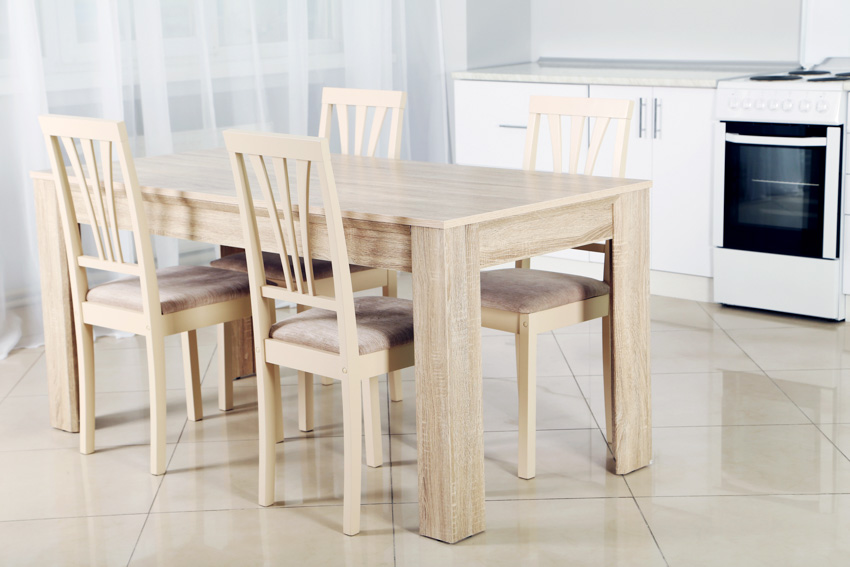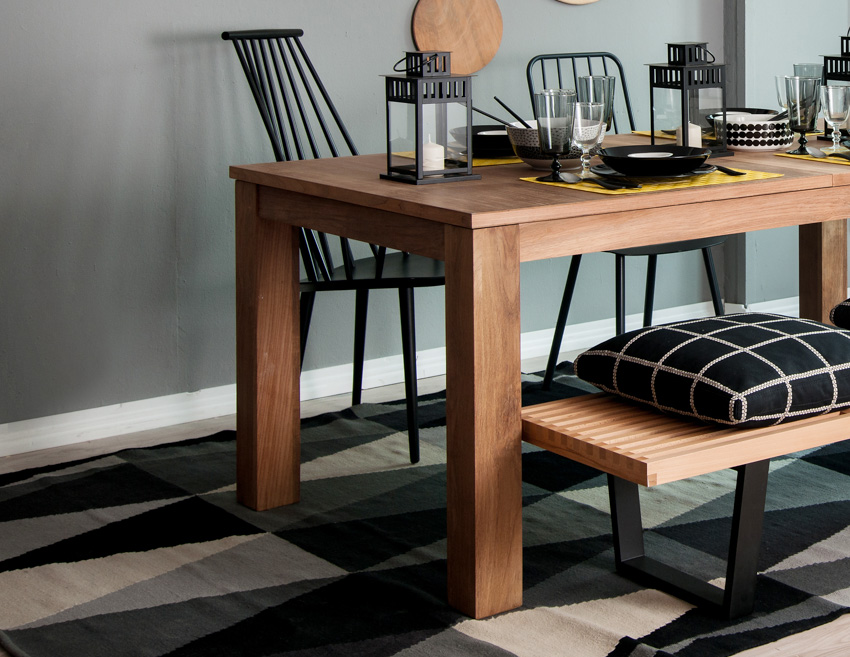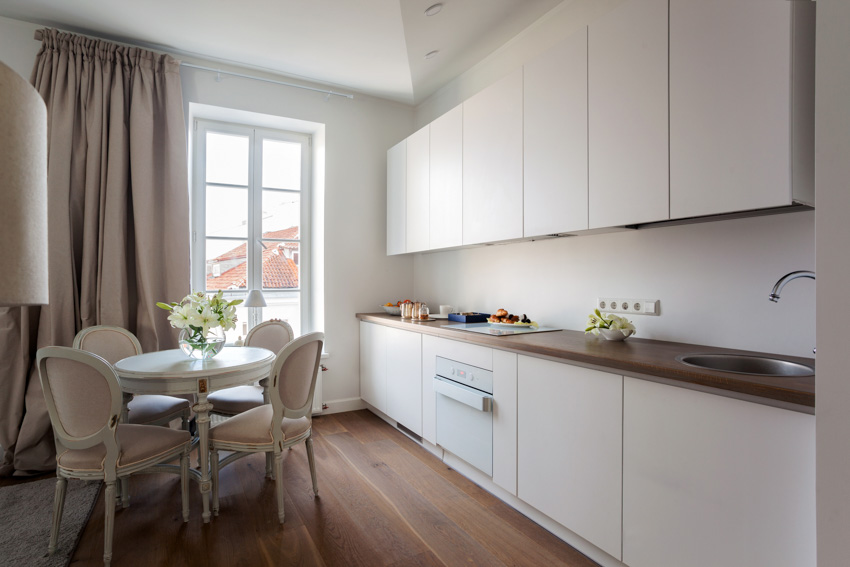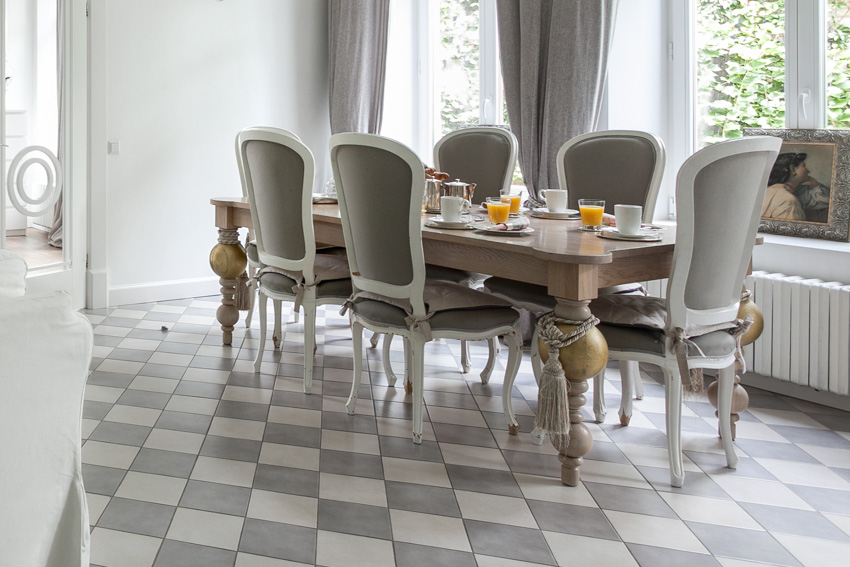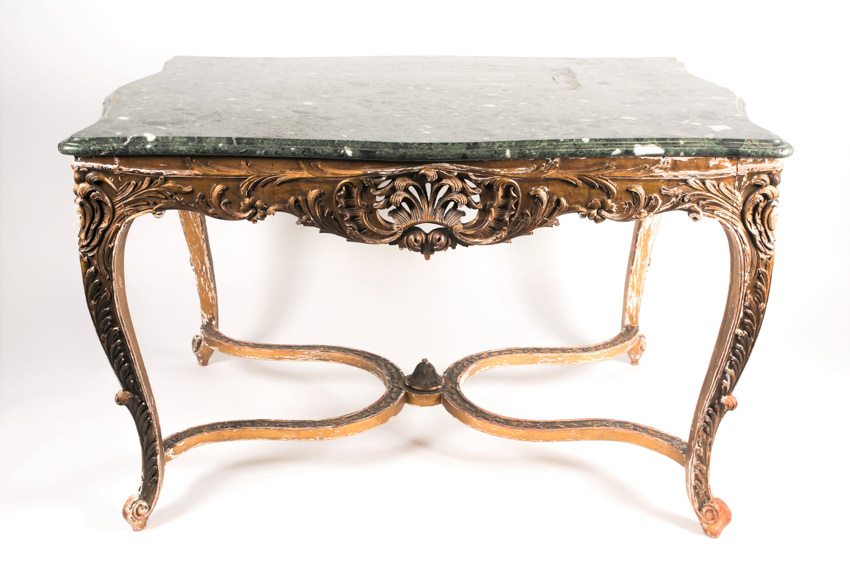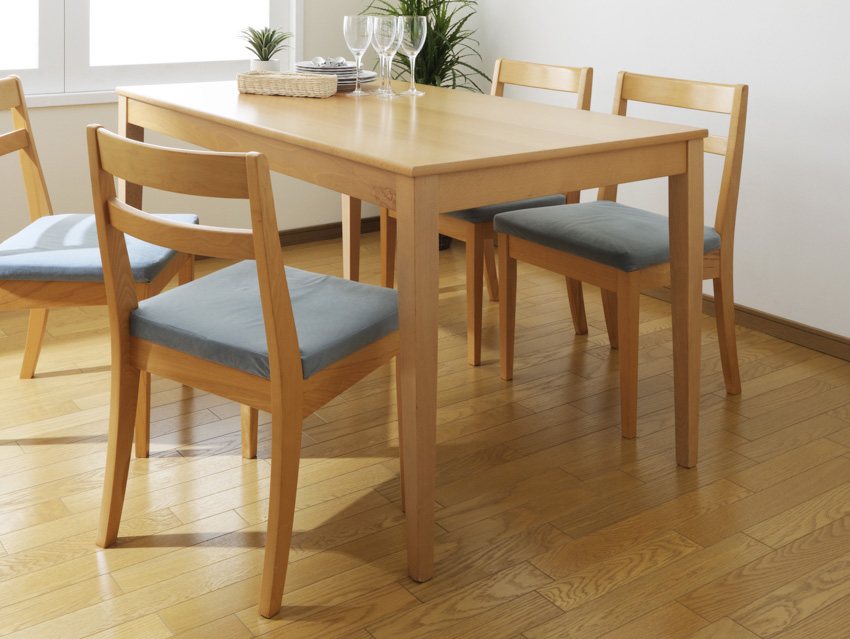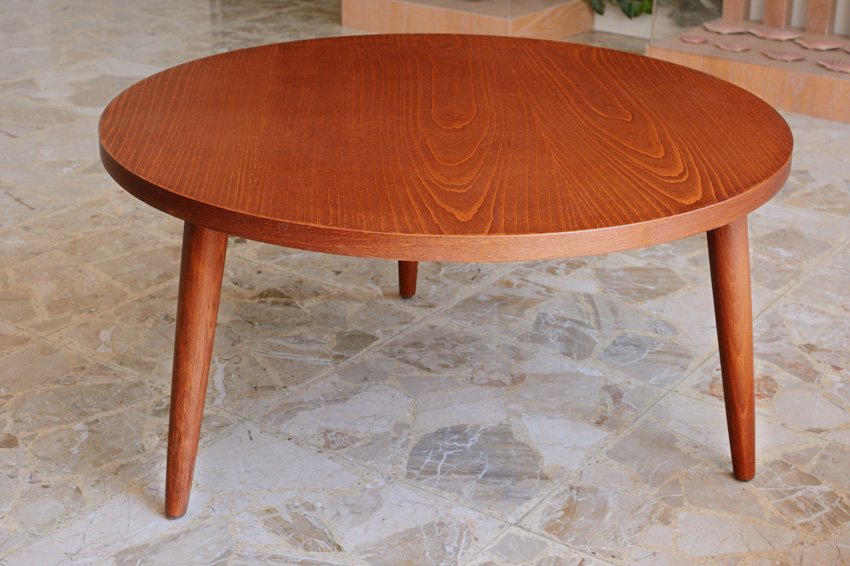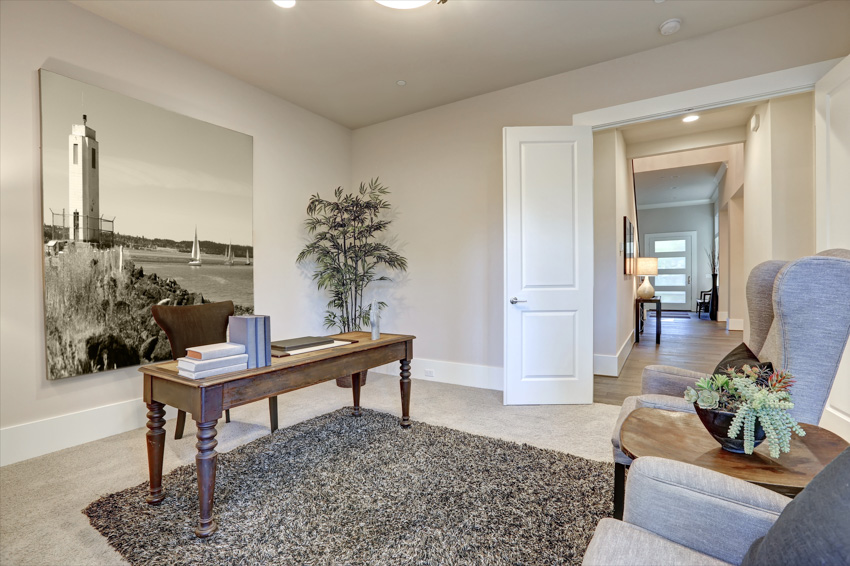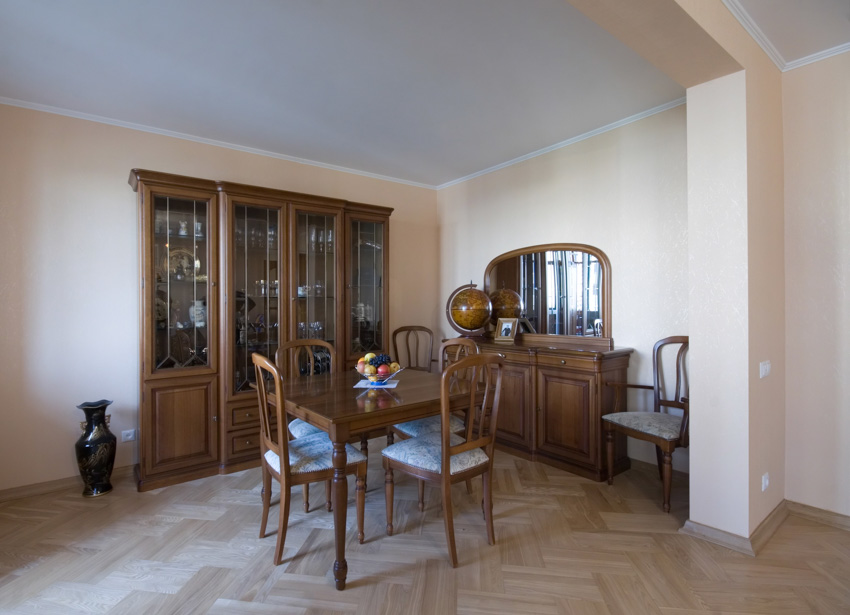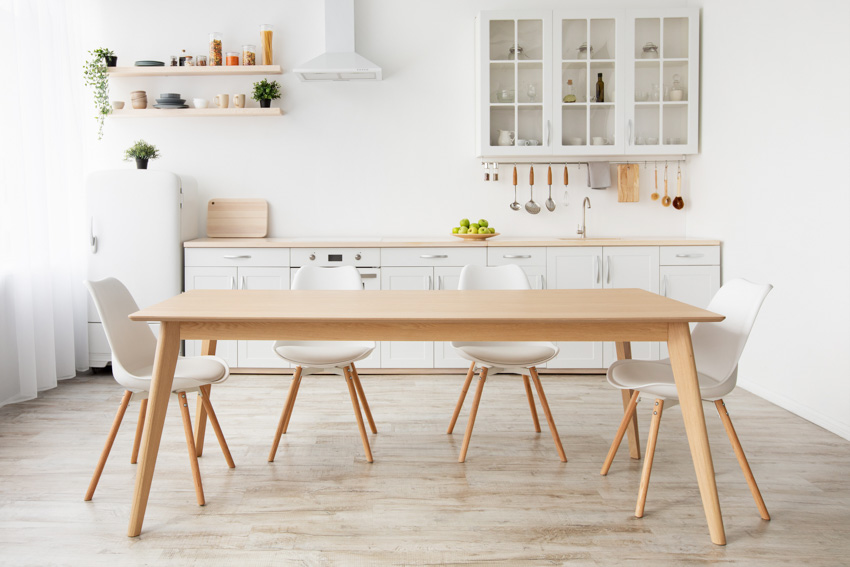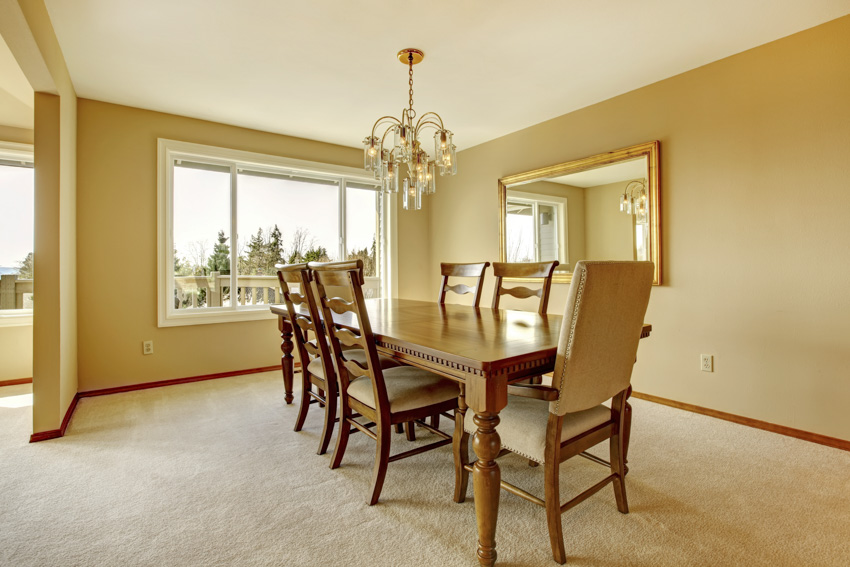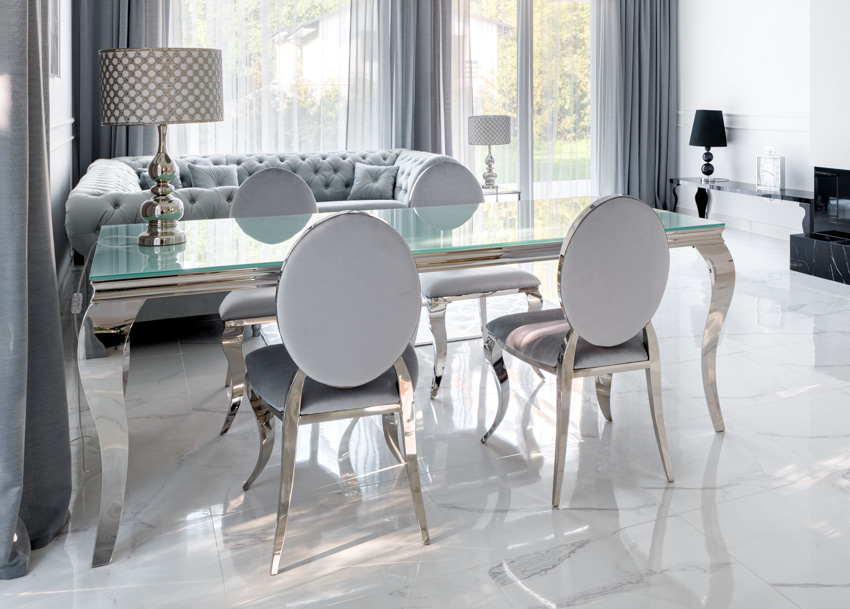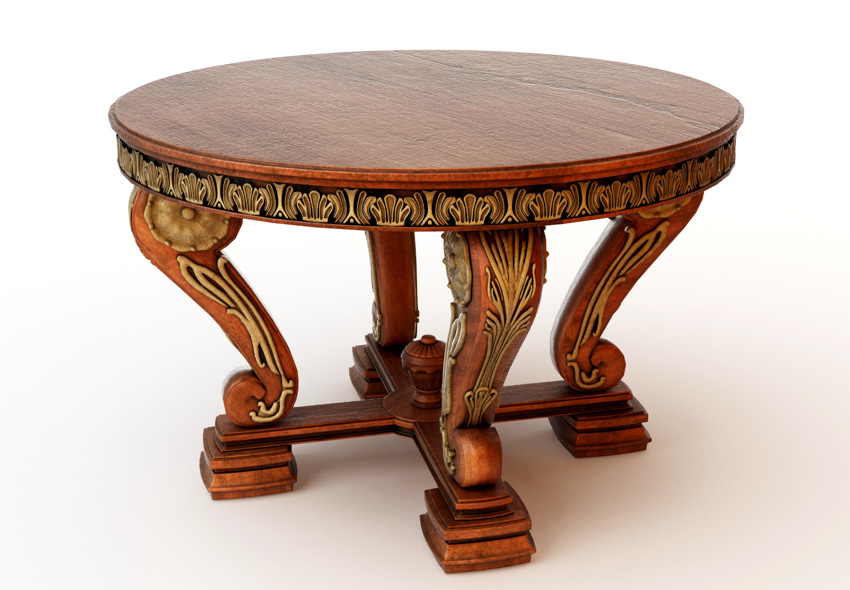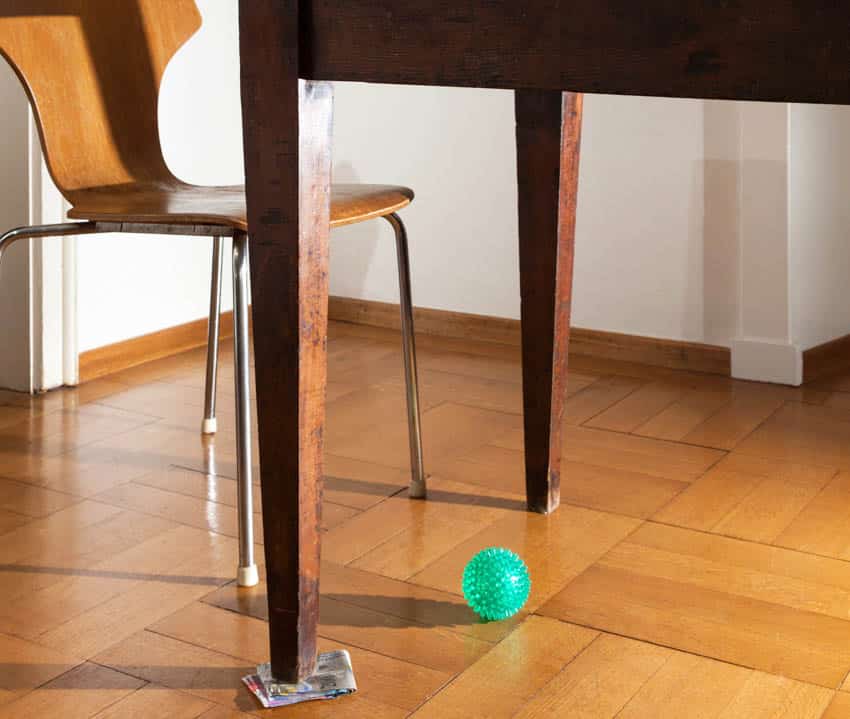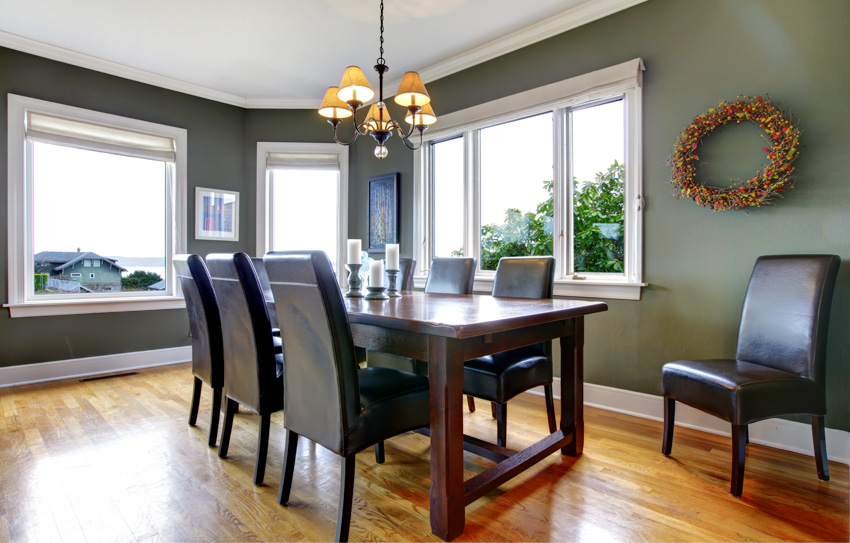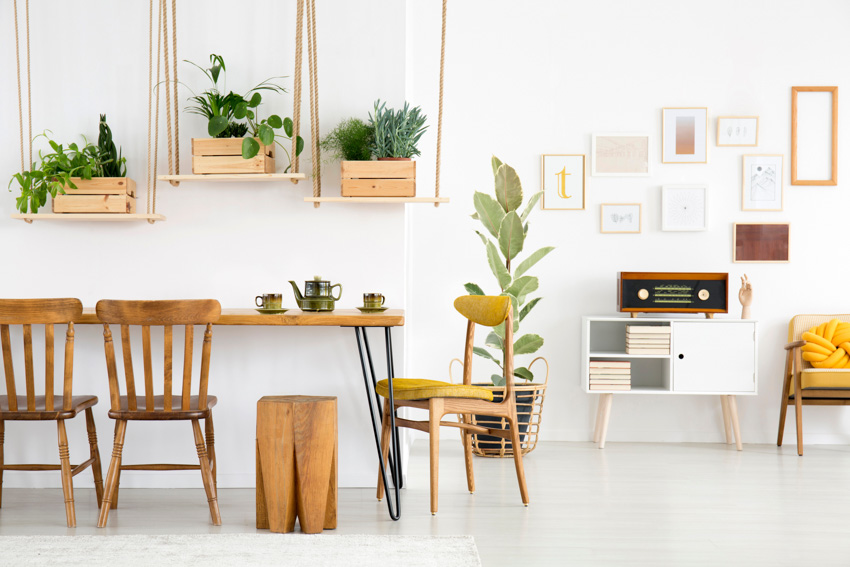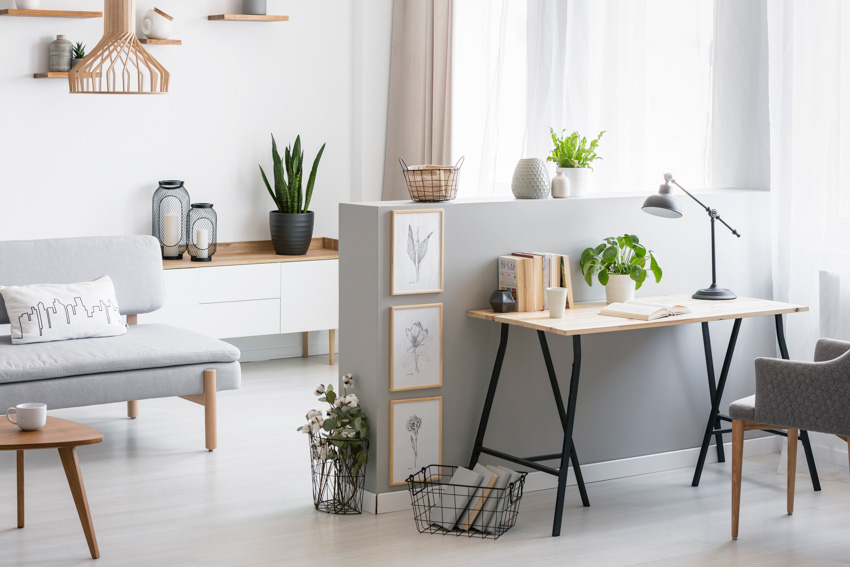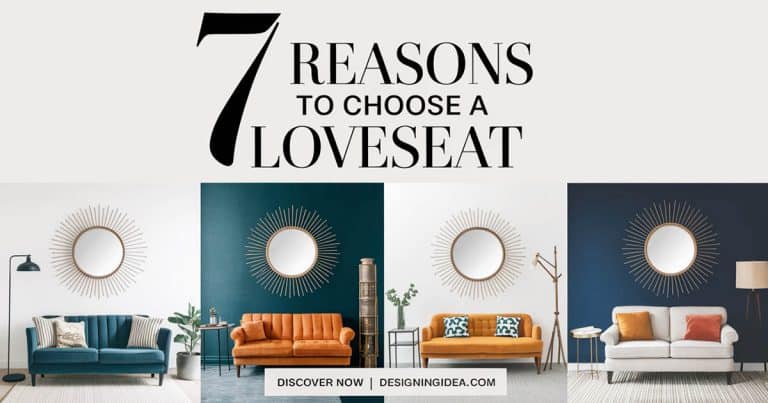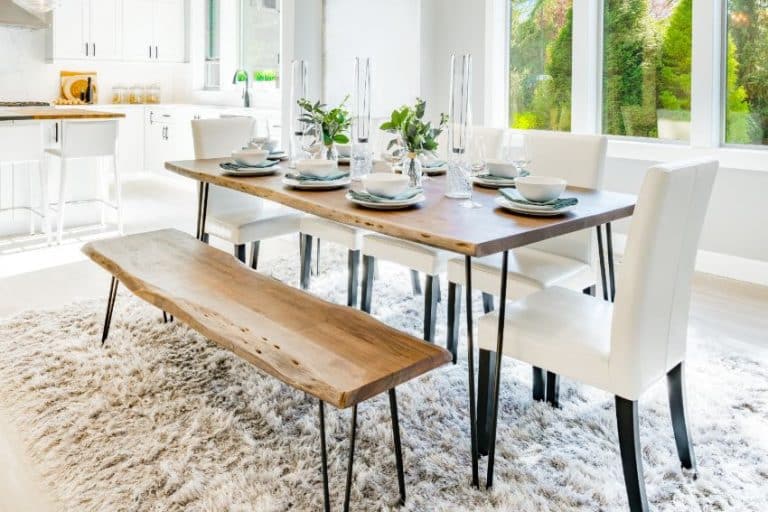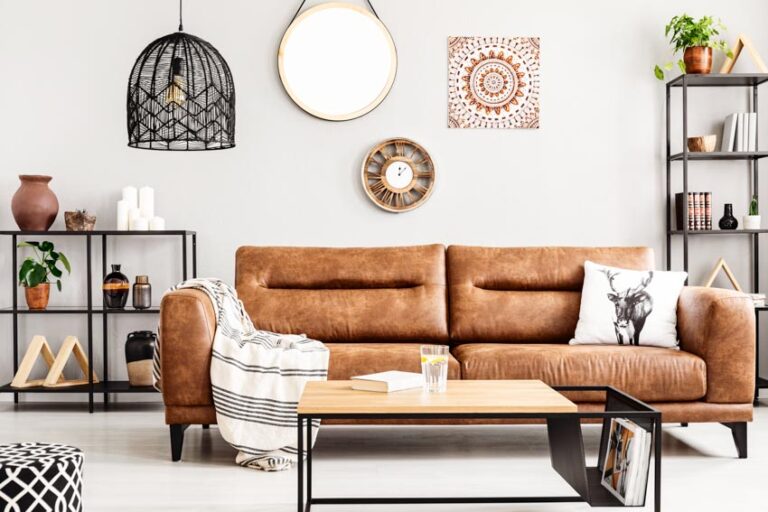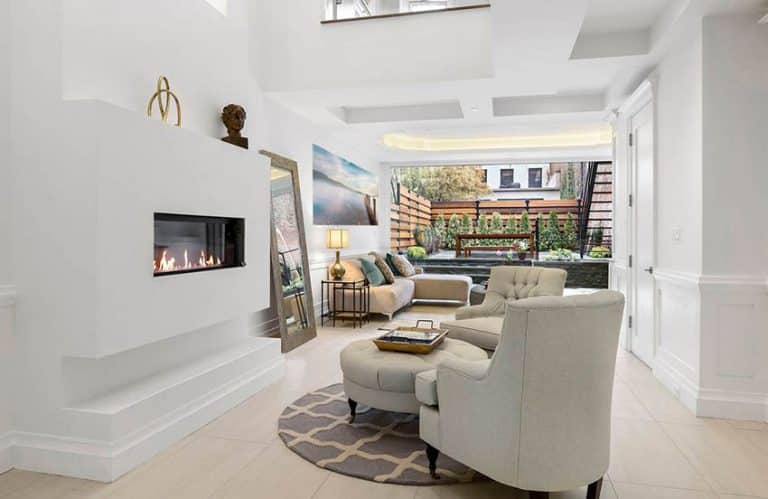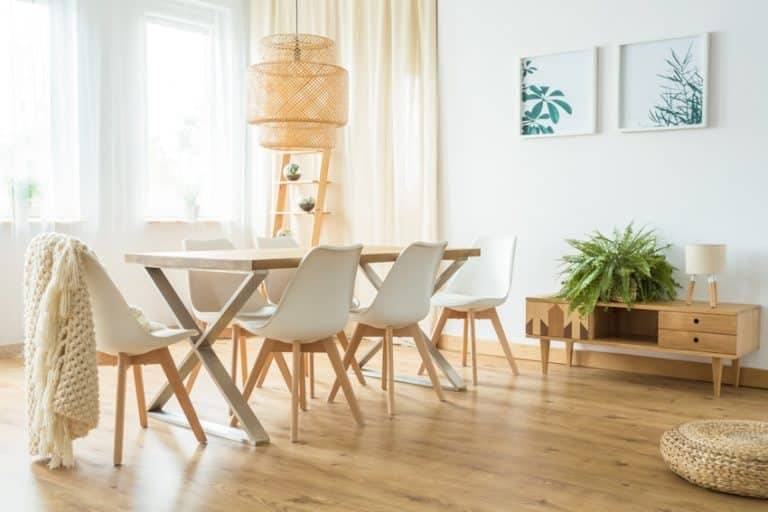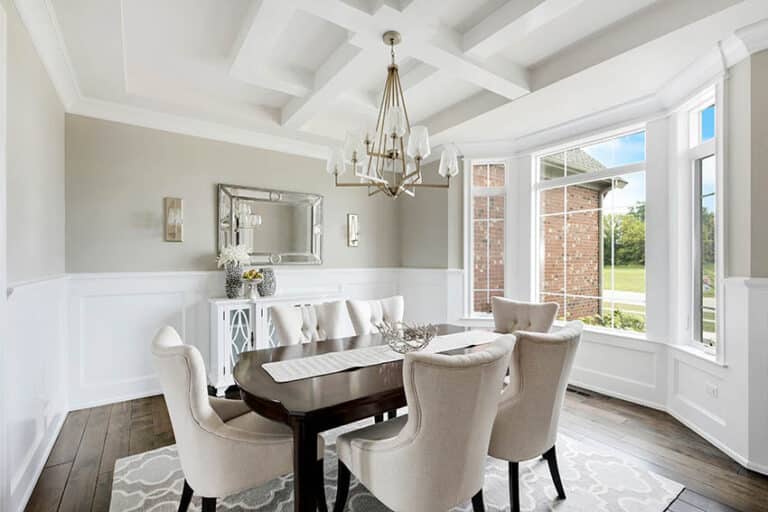17 Types of Table Legs (Style & Design Options)
Here we share our types of table legs guide including furniture and style options such as square, fluted, trumpet, cabriole, shaker, and wegner. See the best choices for tables.
When shopping for a table, you may not have considered numerous leg types and styles. Table legs range from the plainest, sturdy square styles to the gothic-looking spiral designs.
These legs do not just support the tabletop; they blend in to highlight the style or bring attention to the overall design.
The style not only accents the table, but each leg style fits each room’s design and adds characacter and visual interest.
Table Leg Styles
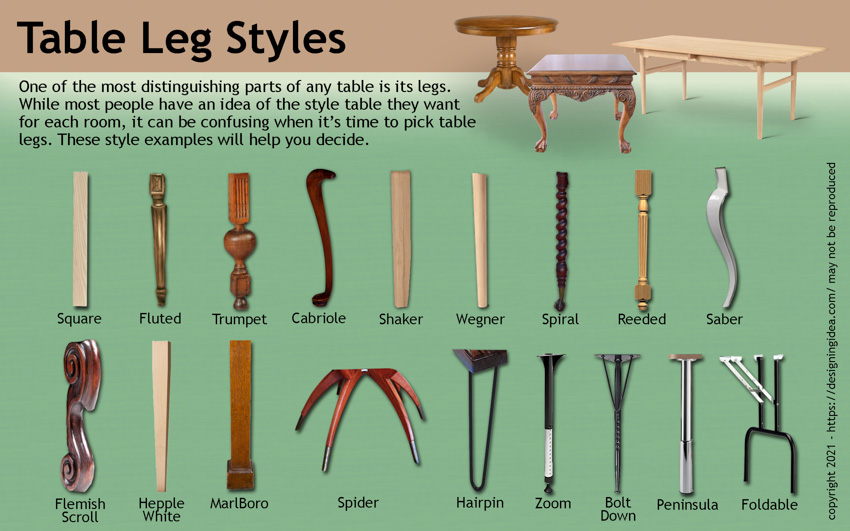
Any home has at least one table in most of its rooms; for example, a kitchen, dining room, bedside, vanity, coffee table, or even a child-sized play table.
One of the most distinguishing parts of any table is its legs.
While most furniture stores offer pre-designed furniture, some allow customers to create a custom-designed piece by choosing the tabletop surface material and the type of legs.
While most people know the table style they want for each room, it can be confusing when it’s time to pick the design for the columns.
This informative guide provides the many types of table legs and what interior design style goes well with them.
Square Legs
Square table legs add clean lines to any tabletop, creating a simple yet beautiful coffee table, bench, or dining room piece. They also find their way into offices or industrial workplaces for their simplicity.
These modern-styled designs typically come fitted with a pre-installed hanger bolt to attach them to the tabletop easily. Homeowners can choose from a rounded corner style or a squared corner.
Compatible with These Styles:
• Modern
• Industrial
• Contemporary
• Minimalist
• Modern Farmhouse
• Rustic
Fluted Legs
This table leg is carved with a series of rounded grooves flowing vertically and spaced evenly.
Fluted designs resemble ancient Greek columns, common in the neoclassical styles of the 18th century and early 19th century.
The fluted leg style has a concave surface, rounded inward. It’s similar to the reeded style that has a convex surface design, rounded outward.
Compatible with These Styles:
• Traditional
• Classic
• Shabby Chic
• French Country
• Mediterranean
Trumpet Legs
Trumpet table legs are typically thick and have curves, flares, and a narrow foot to look like an upturned trumpet.
Common foot types for a trumpet design are ball, bun, or Spanish foot. This design includes a dome at the top, appearing as a mushroom shape connected to another flared connecting piece attached to the tabletop.
Trumpet designs are also called trumpet-turned supports, as turning is used to create the design.
Compatible with These Styles:
• Baroque
• English Restoration
• Classic
• Mediterranean
Cabriole Legs
The Cabriole table leg holds a timeless association with antique Queen Anne and Chippendale styles.
This style of support has a knee that curves outward, flowing down to curve inward at the ankle. The leg then terminates at the foot, usually ornamental in style.
Chippendale furniture designs feature a ball and claw foot, and Queen Anneversions commonly have a pad foot. Many reproduction tables include other foot styles.
Compatible with These Styles:
• Traditional
• Eclectic
• Classic
• French Country
• Mediterranean
Shaker Legs
The Shaker table leg is modeled on the furniture built by the Shakers living in New Hampshire.
These understated supports are an excellent choice for smaller dining room and kitchen tables.
Shaker designs start with a smaller diameter at the foot and thicken as they near the tabletop, making them very stable.
Compatible with These Styles:
• Southwestern
• Eclectic
• Modern
• Contemporary
• Minimalist
• Coastal Living
Wegner Legs
A heavier tabletop may need strong table legs. Wegner’s designs are not only strong, but they’re attractive.
The modern Danish style includes a smooth finish tapering down from the top. A Wegner leg comes straight for a clean and squared design and includes two ways to attach it to the tabletop.
They can also be angled for an even more modern feel and style.
Compatible with These Styles:
• Mid-century Modern
• Modern
• Contemporary
• Retro
• Coastal Living
• Minimalist
Spiral Legs
These table legs were designed after a 17th-century furniture style popular in the 1660s to 1700s. They supported tables made in India, where the style caught on.
As these spiral designs gained notoriety, they traveled to Europe, Portugal, Holland, and England. After making way for more contemporary furniture pieces, spiral designs made a come-back in the mid-19th century and were found on Victorian-style tables.
Spiral supports are also known as spiral-twist or barley-twist columns.
Compatible with These Styles:
• Classic
• Victorian
• Traditional
Reeded Legs
Reeded table legs are almost difficult to distinguish from fluted as they have a similar surface with grooves running vertically.
The evenly spaced, rounded indents are carved in a convex or rounded inward design. Reeded types appeared in ancient Greek and Roman design.
They became popular in the 19th century when they passed fluted supports.
Compatible with These Styles:
• Traditional
• Classic
• Shabby Chic
• French Country
• Mediterranean
Tapered Legs
Tapered table legs are any style of leg that runs straight down vertically. The leg becomes thinner as it reaches the foot. Common styles for tapered designs are straight, fluted, reeded, and spade.
Turned Legs
Turned table legs are created as they are rotated on a lathe. The turning is programmed to create shapes and nodules in a thick wood dowel.
The differing forms result from the lathe being raised up and down from the wood’s surface to outline a particular design.
Saber Legs
Saber table legs are splayed, meaning each leg is cut at the top at an angle to cause the design to flare out from the tabletop instead of standing straight. They also have a slight concave bend similar to a saber.
Saber designs are round or square and taper down from the top, becoming thinner. Saber supports are also known as splayed supports.
Compatible with These Styles:
• Traditional
• Modern
• Contemporary
• Minimalist
• Mid-century Modern
Flemish Scroll Legs
A large scroll at the top and bottom of the leg recognizes a Flemish Scroll table leg. The scrolls typically point opposite from each other.
The Flemish Scroll design made its debut in the second part of the 17th century. They are often seen on Baroque-style furniture pieces. There are two types; double-scroll and S-scroll styles.
Compatible with These Styles:
• Traditional
• Classic
• Mediterranean
• Baroque
• Victorian
Hepplewhite Legs
Another sturdy table leg style is the Hepplewhite. It’s a well-balanced style designed by George Hepplewhite from the 1700s to 1810, part of the Hepplewhite furniture collection.
Hepplewhite designs are plain and straightforward and have nondescript feet. They are graceful and classy supports that work well in Modern Farmhouse and Mid-Century decor.
Compatible with These Styles:
• Modern
• Mid-Century
• Modern Farmhouse
• Minimalist
• Contemporary
Marlborough Legs
A Marlborough table leg is typically square and straight with very little design. This is among the different types that have a block foot and can be footless due to the width and strength of the leg.
Some Marlborough leg styles have a bit of fluting or a slight taper. They make a clean support system that works for simple interior design styles.
Compatible with These Styles:
• Mid-Century Modern
• Modern Farmhouse
• Minimalist
• Classic
Spider Legs
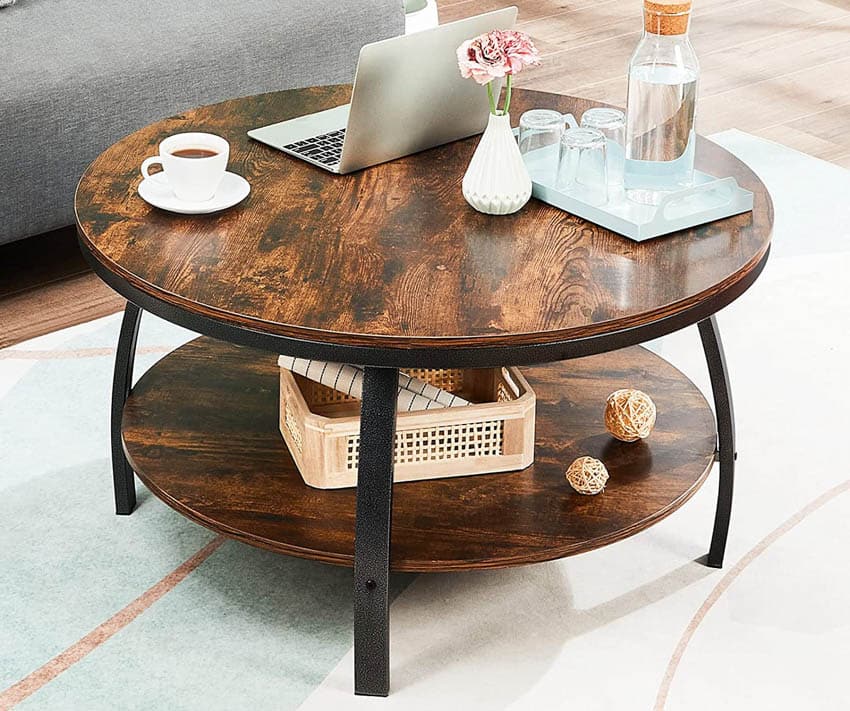
Spider-styled table legs are thin and curved. They flare off a tabletop center post in a group of three or four stanchions.
The curve starts at the center post and makes almost a 45 degree short turn downward that flares out to the floor. This support style originated in the late 18th-century and into the 19-century.
Another version of spider supports is straight and used on gatefold tables so the surface top can easily swing out.
Compatible with These Styles:
• Mediterranean
• Modern Farmhouse
• Traditional
• Classic
• Mid-Century Modern
Hairpin Legs
The hairpin table leg is made with a contemporary look and is commonly made with steel.
The leg is a solid piece of thin and light metal that’s rounded at the bottom with two sides vertically rising to meet the tabletop.
Both sides flare out, giving it a hairpin look. The minimalist design of these supports creates a Mid-Century Modern style.
Compatible with These Styles:
• Mid-Century Modern
• Minimalist
• Contemporary
• Classic
• Modern
Adjustable Legs
Adjustable table legs can add up to 4” or more to a tabletop structure. These work great for worktables, game room, craft room, or shared workstations.
Height adjustable supports are as sturdy as non-adjustable ones and remain stable even after many height adjustments. Height adjustment supports come in several configurations.
• Folding supports are seen on long utility tables.
• Zoom table supports are common for shared office desks.
• Bolt-down height adjustable supports are typically the center post for restaurant and public dining rooms.
• Adjustable peninsula supports are not made for free-standing tables. They’re made for workbenches that must be lowered or raised when working on a project.
With these types of table legs, you should be able to choose an appropriate style for your home to fit most designs. They are often constructed from lightweight materials like plastic or aluminum, making them effective for easy installation as a base for different tabletops.
See more related content in our article about the different types of furniture styles on this page.

